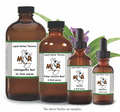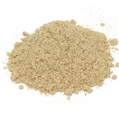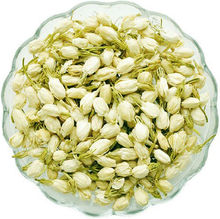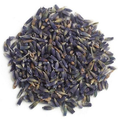 Loading... Please wait...
Loading... Please wait...- Home
- Bulk Herbs
- Herbs (J-L)
- Jasmine Flowers
- Home
- Herbs - Certified Organic
- J-L
- Jasmine Flowers
Jasmine Flowers
Product Description
Jasmine Flowers
Certified Organic - China
Also Known As – Jasminum officinale, Jessamine, and Poet’s Jasmine.
Overview - The Jasmine, or Jessamine (the name derived from the Persian Yasmin), belongs botanically to the genus Jasminum, of the natural order Oleaceae, which contains about 150 species, mostly natives of the warmer regions of the Old World. About forty of these are cultivated in our gardens.
Medicinal Uses - According to old herbals, jasmine flowers calm the nerves. However, others suggest that the scent arouses erotic interests, and a few drops of jasmine oil (if you can afford it) massaged on the body with some almond oil may help overcome frigidity. In India, jasmine is used as a remedy for snakebite, and the leaves are used for eye problems.
There is a common misunderstanding in the herb market concerning dried Jasmine flowers, in that they impart very little fragrance. While most people would assume that the dried flowers are similar to the overpowering aroma of fresh flowers, this is simply not the case. The waxy exude on jasmine flowers which give it the scent we are all familiar with is incredibly volatile and will dissipate within days of being dried, and the result is a dried flower with only a hint of aroma still lingering.
To use Jasmine flowers to drink in tea form they are blended with tea leaves which are harvested in the early spring and stored until the spring when fresh jasmine flowers are in bloom. Jasmine flowers are picked early in the day when the small petals are tightly closed. The flowers are kept cool until nightfall. During the night jasmine flowers open, and release their fragrance, and this is when the tea scenting takes place. There are two main methods used to scent the tea with the jasmine. In one method the tea and flowers are placed in alternating layers; in the other, the tea is blended with jasmine flowers and stored overnight. It takes over four hours for the tea to absorb the fragrance and flavor of the jasmine blossoms. The scenting process may be repeated as many as six or seven times . The tea absorbs moisture from the fresh Jasmine flowers so it must be dried again to prevent spoilage.
Parts Used - Dried flowers.
Precautions - Women who are trying to get pregnant should avoid this herb, as well as women who are breast feeding. There is some evidence to show that it may lower blood pressure so caution should be exercised.
Preparation and Dosage - Creams, washes, liniments, teas, and infusions.
Disclaimer - The information presented herein by Mountain Maus’ Remedies is intended for educational purposes only. These statements have not been evaluated by the FDA and are not intended to diagnose, cure, treat or prevent disease. Individual results may vary, and before using any supplements, it is always advisable to consult with your own health care provider.
If you purchase "Organic" herbs from us please note that we purchase them from Vendors/farms that are "Certified Organic". If you purchase Certified Organic herbs and require an Organic Certification we will send you the C/A obtained from our source. We do not open or repackage purchased Certified Organic herbs. They will be sent to you in the box they arrived in at our facility and forwarded directly to you.
Find Similar Products by Category

Product Reviews
-
Love !!

Posted by Unknown on 7th Jun 2017
Love this Co. searched high and low for jasmine, was thrilled to find it here .
-
Its CERTIFIED ORGANIC

Posted by Juniper T. on 22nd Sep 2016
Its really hard to find certified organic jasmine and I am so happy that we found it! Wasn't sure at first because its so hard to find, but had it tested and it's certified. Will be back for more.
-
Nice flowers

Posted by 1403 on 21st Oct 2015
Couldnt find these anywhere, then low and behold I found this website and they had them in-stock. Great quality and will buy again.














